Randy Alcorn's Blog, page 2
November 5, 2025
Will You Be Ruled by Your Circumstances or Perspective?

This is a repost of an article I wrote back in 1986, four years before Eternal Perspective Ministries existed. It was part of a book Nanci and I co-authored called Women Under Stress (now available as Help for Women Under Stress). We’ve updated a few minor things, but the article remains timeless. In fact, there’s a long history of articles on our website, and I hope you’ll explore more from our vast library of resources. (And by the way, 2025 marks 35 years since EPM began! You might enjoy this look at our 25th anniversary celebration back in 2015.)
One night a man heard a noise nearby and thought there was a burglar in his backyard. The stress was so great he died of a heart attack. Did the burglar cause his stress? No. There was no burglar. What caused his stress—and cost him his life—was not reality but his faulty perception of reality.
With two weddings in the Alcorn family that were planned in one summer, back in 2001, it’s appropriate to tell this story:
Joyce and Maria (not their real names, of course) both had daughters get married in June. Both women were Christians, both loved their girls, both wished them happiness. In fact, the two weddings were very similar. But Joyce and Maria had two very different experiences.
Joyce was a little nervous, naturally, but she was excited, joyful, and festive. This wonderful day in her daughter’s life was also wonderful for her. Not that everything went smoothly—the wedding coordinator was bossy, the photographer was late, the cake was different than she ordered, and the flowers didn’t look quite fresh. When the ring bearer stood on the wrong side of the platform and the groom forgot a line of the vows, Joyce laughed to herself and enjoyed the wedding all the more.
Maria’s daughter was married two weeks later in the same church. The wedding went just as well, perhaps a little better. But Maria was uptight, strung out, and ready to string up the photographer, the florist, and the cake decorator for their inexcusable foul-ups. She cringed when the candlelighters didn’t stay together; she trembled for fear that her husband would blow his one line (“Her mother and I”). Her stomach churned when the best man fumbled for the ring. It may have been the happiest day in someone’s life, but Maria was miserable. Why? Because of her circumstances? No, because of her perspective. Because of her point of view.
Before you write off the difference between Joyce and Maria as “just a difference in personality,” think about it. Maria will never be Joyce and shouldn’t try to be her, but she too can learn to develop a positive perspective on life. Indeed, if she is ever to be content and at peace, Maria must change. Unless she does, the same short-sighted perspective that ruined the wedding for her will inevitably ruin her entire life (not to mention make it unpleasant for everyone around her).
To overcome stress you must either change your circumstances or your perceptions. You can change some circumstances, of course, but many you cannot. The truth is that you have little or no control over the photographer, florist, cake decorator, flower girl, or best man. You can’t make your children get straight As, lower taxes, stop the rain, or cause a cease-fire in the Middle East. You can’t even get your kids to always load the dishes in the dishwasher or get your husband to put his dirty clothes in the laundry basket.
So, if you are to have any peace at all, any relief from stress, you must adjust to human problems, errors, weaknesses, accidents, and any number of things that life is certain to bring and which—if you don’t learn to accept them—are certain to drive you nuts.
Perspective
Our perceptions, much more than our circumstances, are the building blocks with which we construct our lives. There is a sense in which we literally create the world we live in. If it is empty, irritating, boring, hectic, or hurried, it is because we have perceived it that way, and—at least in a sense—made it that way. No matter what the circumstances, our view of life determines our level of joy and contentment.
Don’t misunderstand. I am not promoting “positive thinking” for its own sake. I am advocating positive thinking when and only when it is biblical thinking.
I’ve known some very ungodly people who are “positive thinkers.” They have no time for the doctrine of sin and the reality of true moral guilt and human accountability to God. These things are too “negative” for them. Unfortunately for them, unless they accept these basic biblical truths, negative as they might be, all the positive thinking in the universe won’t deliver them from the ultimate negative—hell.
I am also not encouraging something mystical or magical, the way some people view positive thinking. If you wish real hard and real long and real sincerely...you may still not get what you wish for!
Neither am I talking about the philosophy behind many of the success books like Napoleon Hill’s Think and Grow Rich. These books, and the innumerable seminars spun off from them, define success in terms of the accumulation of wealth (as do some “Christian” sales organizations). They quote freely from Christ and Aristotle and Buddha and “other positive thinkers” and refer to God only in the context of how He can make you wealthy (as if that’s His purpose for existing).
All thinking should be rooted in biblical fact. The truth is that in light of Christ’s victory over sin and death and God’s unalterable plan to rule this universe with righteousness, the biblicist is ultimately an optimist. He is not a positive thinker because pop psychology tells him he should be but because over and over again Scripture gives him reason to be.
If God is good and sits on the throne of the universe and everything that comes into your life is Father-filtered...how can you be anything less than optimistic?
The follower of Christ is not a pessimist, nor is he first an optimist. He is first a realist and then an optimist. In other words, the Christian is not optimistic because it is the most advantageous way to think but because it is the accurate way to think. The Christian’s optimism is based squarely on realism: God is real, the atonement is real, the resurrection is real, the second coming is real, God’s providence is real, and the gospel really is “good news.”
Perspective is what Joshua and Caleb had, and the other ten spies didn’t (Numbers 13-14). Joshua and Caleb entered Canaan and saw the land, the fruit, the potential for prosperity, and a place for their families to live and worship God. The other ten spies went to the same land and saw giants—great men of war, who made conquering the land seem impossible. Joshua and Caleb saw exactly the same giants. But somehow, to them, they just didn’t seem so big. The two saw God as bigger than giants. The ten saw giants as bigger than God. Because they saw God on His throne, Joshua and Caleb could look at the same set of circumstances and see a completely different picture than the others saw—a picture both realistic and optimistic.
A Test of Perspective
Our perspective may not be tested in terms of lands and giants and battle strategy. But count on it—it will be tested.
Many years ago Nanci and I went on a two-week vacation to California. We left the kids with friends, and took off on what was going to be our greatest vacation ever. We had everything planned, and we so deserved the time off (that’s what we told ourselves). We just knew everything would go perfectly.
Everything did go perfectly—for the first forty miles. Then our radiator blew up. We ended up spending the whole day in a small Oregon town which I won’t name for fear of offending someone, though I doubt anyone from this town would ever come across this story. Suffice it to say, it was not the Magic Kingdom.
We had left with a few hundred dollars in cash, and a little more in traveler’s checks, with one major credit card to use as a back-up. Most of the cash was safely hidden, but I put it in my wallet just for a few minutes in order to pay for the radiator. Then I found out we didn’t have enough cash for the radiator. They wouldn’t take a credit card, so we had to use all but one of our traveler’s checks. An hour or two after sunset, we were on the road again.
We drove all the next day and got in late to Santa Clara, California. We went out for pizza, finally ready to relax for the first time in two days. The next thing we knew my wallet had been stolen. That’s right, the wallet that still had all the cash in it from the day before. It also had the credit card. And, to top it off, it was the Friday night of Memorial Day weekend. No bank would be open until Tuesday, when we had reservations in another part of the state. Meanwhile, we had a grand total of one $20 traveler’s check to get us through the next three and a half days.
The rest of the trip was good news and bad news. The good news was that the sun shone the whole time. The bad news was that Nanci developed an extremely uncomfortable sun rash and couldn’t expose her skin to direct sunlight until we returned home to Oregon (where direct sunlight is rarely a problem for most of the year). Long sleeves, high necklines, and floppy hats were the only thing that allowed Nanci to escape from the hotel room.
What’s the point of this story? The point is, it turned out to be potentially the worst vacation we’ve ever had. But it turned out actually to be the best vacation we’ve ever had. Why? Perspective.
We cried, we prayed, we laughed, we grew. We counted our blessings and realized how much we had and how little we had lost. Once we let go of our ideal picture-perfect vacation and determined to enjoy whatever God had for us, He gave back to us a wonderful time and more. The circumstances didn’t improve because our attitudes improved. But, by God’s grace, our attitudes completely overwhelmed the circumstances.
As goes your perspective, so goes your vacation, your wedding, your job, your dishes, your ministry, your carpool...your whole life.
“Many are the plans in a man’s heart, but it is the Lord’s purpose that prevails” (Proverbs 18:14). A right attitude carries you through bad circumstances and poor health. But no matter how strong the body, how positive the circumstances, a crushed spirit will never experience joy. Perspective is what makes the spirit soar like an eagle even when the body is ravaged by accident, disease, and age.
What We Believe
Perspective is rooted in belief. We think and act based upon our beliefs. Our belief system is the blueprint around which we build our life and the lens through which we see our life.
This is why exposure to true Bible teaching is so important, and why it’s essential to attend a church that teaches God’s Word and to study it daily ourselves (Acts 17:11). The more our beliefs are established on God’s truth, the better the foundation for our entire life, and the less likely we will collapse under life’s stresses.
When I speak of beliefs, I don’t mean merely what we say we believe but what we really do believe. Most of us say we believe in a sovereign God. Our doctrine is correct, but the true test of our beliefs is when we have a week of rain on our long-awaited camping trip, or the car breaks down on the way to the airport, or the washer—with all of your best delicate clothes in it—is filled with muddy water from a broken water main (this happened to Nanci). Is God sovereign when He deals with the rise and fall of empires but not when my tent leaks or my favorite shirt is ruined? Is He sovereign just when I get my way, or is He always sovereign? The illustrations I’m using are small things. But the God who’s sovereign in small things also controls the big ones.
Hopefully, your beliefs are rooted in truth. But whether they are or not, they will determine your perspective. Ironically, sometimes non-Christians view life positively when in fact they are hopelessly lost without Christ. On the other hand, Christians who have every reason to be joyous may have very negative attitudes. The person going to hell may be relatively happy; the one going to Heaven may be miserable. Both have attitudes based on incorrect beliefs. But whether or not they are correct, beliefs do determine attitudes.
Rejoicing Despite Circumstances
Probably the biggest step in reducing and controlling stress is to realize once and for all that circumstances do not cause stress. It is our interpretation of and response to circumstances that cause stress.
Have you ever read the popular children’s story Alexander and the Terrible, Horrible, No Good, Very Bad Day? Read the story and at first you think Alexander did have an unusual number of terrible things happen to him, so no wonder he had a terrible day. But then you realize that the things that happened to Alexander are the usual kinds of irritations that happen to us all daily. They are simply part of being alive in this far-from-perfect world. It is our loss of perspective that magnifies out of proportion every little thing that goes wrong.
If today was difficult because “it wasn’t a normal day,” ask yourself, “When was the last time I had a normal day?” It was not Alexander’s circumstances but his interpretation of and response to those circumstances that caused his terrible, horrible, no good, very bad day. Same with yours.
Circumstances aren’t what makes a day—or a lifetime—good or bad. What else can explain the fact that many people have beautiful homes, secure jobs, every material possession imaginable, financial security, perfect health, and yet are miserable, even suicidal? And that many others live in poverty, own nothing, have poor health, and yet are filled with the joy of life?
Most people rejoice when their circumstances are good and get depressed when their circumstances are bad. As Christians we are to “rejoice in the Lord always” (Philippians 4:4-6). Do you know what the word translated “always” means in the original Greek? It means always. (That’s why it’s translated that way.) “Always” means we are to rejoice regardless of our circumstances-not because of them.
As Christians we always have reason to rejoice because of truths that are untouched and unchanged by outward circumstances. We are created by God, loved by God, cared for by God whether it rains or shines, whether there’s war or peace. “Jesus Christ is the same yesterday, today, and forever” whether the church splits, the pastor leaves, or there’s a terrible scandal.
Consider Paul and Silas when they were in prison at Philippi. Both men had been severely flogged and their feet were fastened in stocks in what in those days was a disease-ridden, rat-infested cell. How did they respond? “About midnight Paul and Silas were praying and singing hymns to God, and the other prisoners were listening to them” (Acts 16:25). Keep in mind that though Paul and Silas later escaped through divine intervention, at the time they were rejoicing and singing they had no idea they were going to escape. In other words, their spirits were joyful even in the face of further beatings and death.
What would most of us have done in that prison cell? Some of us would mope and grouse and weep and kick the walls and cater our own little pity party. In other words, we would fit right in with the other prisoners. It’s when there’s something different about us, when we are filled with “the peace of God which transcends all understanding” that we draw the attention of discontent searching people in need of Christ.
Your baby is born with Down Syndrome, your family business is lost, your wife leaves, your house is burned to the ground. Am I suggesting these circumstances will not affect you? Of course not. I’m only saying they need not control you. You can rise above them, as Paul and Silas and many others have done, and as people of God are doing right now all over the world. When these things happen to you, the world will watch. And if it sees calm in the midst of storm, it will be drawn to the Christ you love.
Let God be God
Some years ago Rabbi Harold Kushner wrote the bestseller When Bad Things Happen to Good People. He concluded that since there is so much evil and tragedy and suffering, either God must not be all-good or He must not be all-powerful. Opting for God’s goodness, he decided God is not all-powerful.
The rabbi’s mistake was a familiar one: failure to believe Scripture when it teaches things we do not understand. The truth is that God is all-loving and all-powerful and that there are reasons He allows suffering. We cannot understand all those reasons, though sometimes we catch a glimpse of them. But our lack of understanding does not negate God’s attributes. It only proves what the Bible said all along:
For My thoughts are not your thoughts, neither are your ways My ways,” declares the Lord. As the heavens are higher than the earth, so are My ways higher than your ways and My thoughts than your thoughts (Isaiah 55:8-9).
We need not and must not hedge on one attribute of God in order to preserve another. God cares about the pain and suffering of this world far more than we. One day He will make it all right. Until then we must learn to trust Him.
Recommended Reading
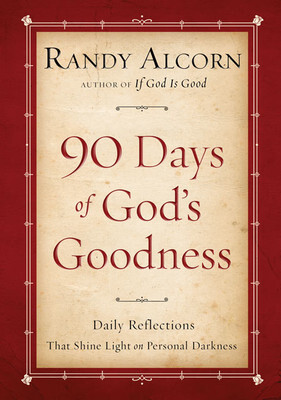 90 Days of God's Goodness
90 Days of God's Goodness 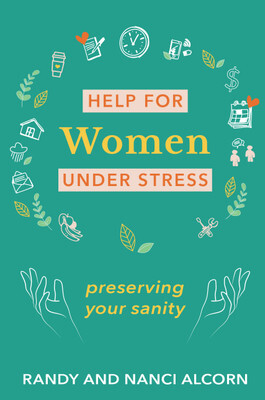 Help for Women Under Stress
Help for Women Under Stress
November 3, 2025
Is It Right for Us to Long for Reunion in Eternity with Our Loved Ones?

Believers periodically tell me versions of the following: “We shouldn’t be thinking about reunion with loved ones, or the joys of Heaven. We should only be thinking about being united with Christ, who is our only treasure.” This sounds spiritual, but is it?
Paul says to his friends in Thessalonica, “We loved you so much” and “You had become so dear to us,” then speaks of his “intense longing” to be with them (1 Thessalonians 2:8, 17). In fact, Paul anticipates his ongoing relationship with the Thessalonians as part of his heavenly reward: “What is our hope, our joy, or the crown in which we will glory in the presence of our Lord Jesus when he comes? Is it not you? Indeed, you are our glory and joy” (1 Thessalonians 2:19-20).
Isn’t this emphatic proof that it’s appropriate for us to deeply love people and look forward to being with them in Heaven? Paul sees no contradiction in referring to both Christ and his friends as his hope and joy and crown in Heaven.
Paul then asks, “How can we thank God enough for you in return for all the joy we have in the presence of our God because of you?” (3:9). The joy he takes in his friends doesn’t compete with his joy in God—it’s part of it. Paul thanks God for his friends. Whenever we’re moved to thank God for people, we’re experiencing exactly what He intended.
Paul also says to the Thessalonians, “You long to see us, just as we also long to see you. . . . How can we thank God enough for you in return for all the joy we have in the presence of our God because of you? Night and day we pray most earnestly that we may see you again” (3:6, 9-10). Paul finds joy in God’s presence because of other Christians. He anticipates the day “when our Lord Jesus comes with all his holy ones” (3:13). He looks forward to being with Jesus and his people.
Paul tells the Thessalonians that we’ll be reunited with believing family and friends in Heaven: “Brothers, we do not want you to be ignorant about those who fall asleep, or to grieve like the rest of men, who have no hope. . . . God will bring with Jesus those who have fallen asleep in him. . . . We who are still alive and are left will be caught up together with them. . . . And so we will be with the Lord forever. Therefore encourage each other with these words” (4:13-14, 17-18). Our source of comfort isn’t only that we’ll be with the Lord in Heaven, but also that we’ll be with each other.
Puritan Richard Baxter longed for that comfort: “I know that Christ is all in all; and that it is the presence of God that makes Heaven to be Heaven. But yet it much sweetens the thoughts of that place to me that there are there such a multitude of my most dear and precious friends in Christ.”
In Philippians 1 Paul writes with unapologetic affection to his brothers in Christ, describing himself as longing for them. Note that he clearly sees no incompatibility between his Christ-centered desire to be with Jesus (1:21) and his Christ-centered love for others:
I thank my God every time I remember you. In all my prayers for all of you, I always pray with joy because of your partnership in the gospel from the first day until now, being confident of this, that he who began a good work in you will carry it on to completion until the day of Christ Jesus.
Paul’s interest and delight in their lives is perfectly in keeping with the fact that the first and second greatest commands are virtually inseparable: “Love the Lord your God with all your heart…love your neighbor as yourself.” (And if your neighbor, how much more your family, which derives its identity from none other but God himself?).
As if anticipating that someone might object, “But God is our only treasure, and God is the only one we should find joy in and long for,” Paul goes on in the following verses to say this:
It is right for me to feel this way about all of you, since I have you in my heart; for whether I am in chains or defending and confirming the gospel, all of you share in God's grace with me. God can testify how I long for all of you with the affection of Christ Jesus.
Note the source of Paul’s deep longing and affection for his brothers and sisters: Christ Jesus himself. It is possible to put people over God, and this is idolatry. But it is also possible, in putting God over people, to then find in people a wonderful expression of God Himself—so great that it is completely appropriate for us to have them in our hearts, to find joy in them, and to long to be with them.
Such sentiments are not idolatry—it is not wrong to have them. In fact, something is wrong if we do not have them. Finding joy in God and longing for God doesn’t kill our joy in and longing for others, but fuels it. The joy in and longing we have for them is directly derived from our joy in and longing for Him. The two are not incompatible. Indeed, the second thing—our love for others—flows directly from the first thing—our love for God—and then flows right back into it, to His glory.
Keeping in mind the things I’ve just shared, I acknowledge that there is another extreme some people can have, where their focus is only on reunion with their loved ones—to the exclusion of Jesus, who is the primary attraction of Heaven. See this Q&A one of our staff answered: “Is There a Danger of Longing for Heavenly Reunion with Loved Ones More Than Longing to See Jesus?” Also see my article God’s Presence Is the Essence of Heaven.
And here is a video answer to the question: “What Would You Say to Someone Who Wants to Go to Heaven Just to Be with Their Loved Ones?”
https://www.youtube.com/watch?v=eEXH-wSrkxY?t=229s
As I say in the video, our relationship with Jesus should transform our grief. I look forward to being reunited with my precious Nanci; but I look forward first and foremost to being with Jesus. But seen in proper perspective, in no way does that secondary desire negate my primary desire.
Recommended Reading
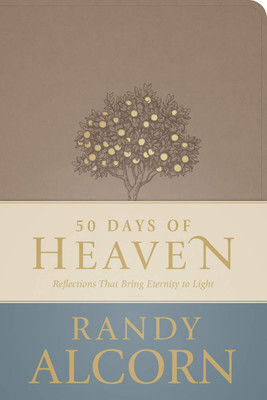 50 Days of Heaven (Special Edition)
50 Days of Heaven (Special Edition) 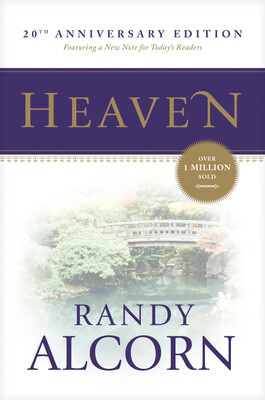 Heaven
Heaven  The Promise of the New Earth
The Promise of the New Earth
October 31, 2025
We Won’t Regret Investing in God’s Kingdom

Kate Kiehl is a giving coach and heads up GenHerus, which empowers women to find joy in giving. She shared these thoughts on Instagram:
Stop and think about it. Do you look back and have regrets giving money away?
I certainly don’t WHEN I give money to Kingdom work.
Sure, I may have had disappointments or thought the charity I just supported could have handled the resources better. But I usually don’t. Because I believe in doing due diligence. And then giving it willingly and with no strings attached! After all, it’s Gods money! I’m just called to do my part in investing in Kingdom work and being an open vessel.
I believe that’s the best ROI [return on investment] we could ever hope for or imagine!
In fact, investing in Kingdom work is what @randyalcorn_epm calls a WIN WIN WIN: It’s a win to the recipient, win for working in our hearts, and win for storing up treasure in Heaven!
…when I look back at different seasons of life, I wish I would have given even more 👉🏻 This is a great reminder to me how I want to live now.
Ironically, I do have regrets when I spent money frivolously on things which have worn out, died out, or are out of style. You know, the things you think you can’t live without. Just that little purchase here and there.
…So stop and consider your giving and spending. What regrets do you have? And maybe what needs to change right now and in the future?
At the conclusion of the movie Schindler’s List, Oskar Schindler—who saved many Jews from the Nazis—looks at his car and his gold pin and regrets that he didn’t give more of his money and possessions to save more lives. Schindler uses his opportunity far better than most. But in the end, he longs for a chance to go back and choose human lives over material possessions.
Just as unbelievers have no second chance to relive their lives and choose Christ, Christians get no second chance to do more to help the needy and invest in God’s Kingdom. We have one brief opportunity—our lifetime on Earth—to use our resources to make a difference.
Think through the eventual end of all possessions, including new cars, hot tubs, and entertainment systems (realizing there’s nothing inherently wrong with any of them). From an eternal perspective, imagine how the money allocated for these items might instead be invested in helping people and bringing them the gospel! (Can you imagine anyone saying on his or her deathbed, “I wish I’d bought more stuff”? What do you think dying people actually regret or wish they’d done differently in terms of their relationships, possessions, and choices?)
John Wesley said, “I value all things only by the price they shall gain in eternity.” If we truly understood that both the present and the eternal results of giving are far more beautiful than any earthly treasure we could possess, we’d never hesitate or wonder whether it’s worthwhile to give. Our sacred and joyful opportunity here on Earth is to use our lives, which are built on the foundation of Christ, to help build a magnificent foundation for the world to come (see 1 Timothy 6:19).
Five minutes after we die, we’ll know exactly how we should have lived. But then it will be too late to rewind and live this life over. Fortunately, God has given us His Word so we don’t have to wait until we die to find out how we should have lived. Moreover, He’s given us His Spirit to empower us to live how He tells us to live.
https://www.youtube.com/watch?v=TbRjYCX58Fc
If you’d like to explore more about the life-changing power of giving, check out my book Giving Is the Good Life, which is now available in paperback. While I had written The Treasure Principle years ago, then updated it, I had many more giving stories I wanted to tell. This time I decided to address the biblical theme of “the life that is truly life” (1 Timothy 6:19). I’ve been struck for years by how in a remarkably clear way, 1 Timothy 6:9-10 shares the bad news about wealth, and 1 Timothy 6:17-19 gives the good news. And that positive news is that we can share with others the wealth God has entrusted to us in a way that helps the needy, and also—remarkably—will result in God granting us eternal rewards as well as greatly enriching our present lives. Giving Is the Good Life came from my study of this passage. I hope it will help you catch a vision for the joy of giving!
Recommended Reading
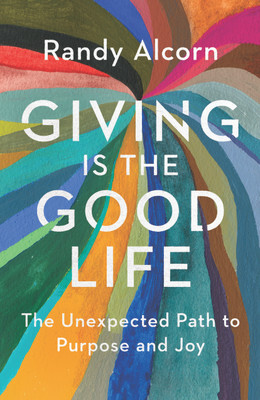 Giving Is the Good Life (Softcover)
Giving Is the Good Life (Softcover)
October 29, 2025
The Idol of the Life We Think God Owes Us

My dear friend Diane Meyer shared the following poem on Facebook. Thanks to author Sarah Trent for writing it, and for permission to repost it. (Sarah’s goal is to call others to “launch out into the deep,” like Jesus told the disciples. You can find her on Facebook and Instagram.)
This is SO very good:
There is no idol more subtle than the life I thought God owed me.
Not the golden calf, not the graven image, not the gods of stone or wood—
but the one I built quietly in my heart.
The version of my life I scripted,
the story I demanded,
the ending I believed I deserved.
It was polished with prayers,
shaped by longing,
wrapped in expectations so carefully disguised as “faith.”
I called it hope,
but sometimes it was entitlement in a holy robe.
I whispered, “Surely, God, You will give me this—
because I love You, because I serve You, because I waited.”
And when He didn’t,
when the script unraveled,
when the chapter didn’t end the way I swore it must, I realized the idol wasn’t out there.
It was in me.
It was the version of life I thought He owed me.
This idol never shouted, never demanded.
It lulled me instead—
with illusions of control,
with dreams that sat enthroned above surrender.
And I, thinking I was bowing in worship,
was actually bargaining with God.
But idols always break us.
They always leave us empty.
And in the crushing of that false expectation,
in the shattering of that image,
something holy rises—
a deeper worship, a truer surrender.
Because when I let go of the life I thought He owed me,
I found the life He always meant for me.
Not lesser. Not cruel. Not careless.
But eternal. Weighty with glory.
Rooted in His wisdom,
not in my demands.
So today I lay it down again—
the idol of “what should have been,”
the altar of “my plans.”
And I whisper through tears and trembling,
“Not my will, Lord,
but Yours.”
Because the life I think He owes me doesn’t exist. The life He gives me—
that is the miracle.
That is the treasure.
That is the cross, the resurrection,
and the promise I can build eternity on.
God calls upon us to trust Him, knowing that He has a plan for us and will work everything in our lives for good. But we delude ourselves when we think we have ultimate control over our lives. It often comes down to this: what we really want is to make our own plans and do our own thing. We don’t want anyone, including God, to impose His plans on us.
It’s all too easy to imagine that God should let us have our way, and give us the life we envisioned. And when He doesn’t, we easily resent Him.
In her devotional Watching for the Morning, Vaneetha Rendall Risner quotes Larry Crabb:
I couldn’t shake the assumption that the display of God’s glory meant the enjoyment of my story. If he loves me, he will bless me. What I did not see was that he wanted to bless me with himself. I was too much like the spoiled child at Christmas who really didn’t much care if dad showed up on Christmas morning as long as he had stacked lots of presents beneath the tree.
Vaneetha adds, “I assumed that if God loved me, He would bless me. It took me a while to see that I could trust God to use the exact hand He dealt me to maximize my joy. Nothing was accidental. And I saw that the greatest gift was not a comfortable life but clinging to Him in a life that was far from comfortable.”
The child whose father steps in front of him to protect him from a hail of bullets can trust him not to poison his food or push him off a cliff. He can trust his father to catch him as he lets go of the monkey bars. And yes, he can trust him even when his father chooses to let him face something dreadful that he could have kept from him.
“He who did not spare his own Son, but gave him up for us all—how will he not also, along with him, graciously give us all things?” (Romans 8:32). When God has given us the greatest gift of eternal life, the one that cost Him everything, shouldn’t we trust Him with every other aspect of our present lives?
Recommended Reading
 90 Days of God's Goodness
90 Days of God's Goodness 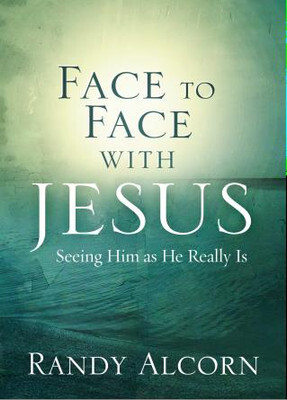 Face to Face with Jesus
Face to Face with Jesus 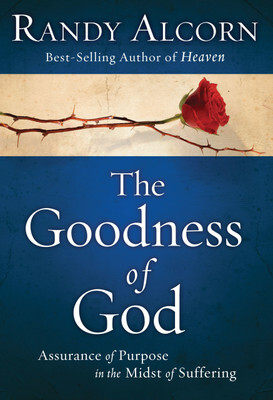 The Goodness of God
The Goodness of God
October 27, 2025
Our Creator’s Wonderful Underwater Works

When I’ve been snorkeling, I often think how incredible it is to get a glimpse of all the things God governs that go on in the universe, 99.99999% of which we never see or think about! When I have the opportunity, I spend many hours in the water, searching the reef, taking photos, and losing all sense of time. Even when far from the ocean, I often find underwater images working their way into my mind. It’s a profoundly spiritual experience to enjoy the wonders and beauties of God’s underwater world.
I remember one time snorkeling with one of my daughters, a friend, and his son. Suddenly we heard the melodic sounds of whales calling to each other. The sounds were so loud that we expected whales to appear any moment. We floated, nearly motionless, just listening to musical beauty and power that defies words. I felt closer to God during that twenty minutes than at nearly any other time in my life.
Listen to what Scripture has to say about God’s underwater creations, and how they glorify Him:
“O Lord, how manifold are your works! In wisdom have you made them all; the earth is full of your creatures.” (Psalm 104:24)
“So God created the great sea creatures and every living creature that moves, with which the waters swarm, according to their kinds, and every winged bird according to its kind. And God saw that it was good.” (Genesis 1:21)
“The Maker of heaven and earth, the sea, and everything in them—the Lord, who remains faithful forever.” (Psalm 146:6)
“Here is the sea, great and wide, which teems with creatures innumerable, living things both small and great. There go the ships, and Leviathan, which you formed to play in it.” (Psalm 104:25-26)
“For his invisible attributes, namely, his eternal power and divine nature, have been clearly perceived, ever since the creation of the world, in the things that have been made.” (Romans 1:20)
“Let the heavens rejoice, let the earth be glad; let the sea resound, and all that is in it.” (Psalm 96:11)
“And I heard every creature in heaven and on earth and under the earth and in the sea, and all that is in them, saying, ‘To him who sits on the throne and to the Lamb be blessing and honor and glory and might forever and ever!’” (Revelation 5:13)
These verses remind me of the sheer delight of my unforgettable ninety-minute underwater encounter with a wonderful monk seal I named Molly. Whenever I look at Molly’s photo, my heart fills with joyful memories and longing for the New Earth’s joy and the days that await us. You can watch some footage from that remarkable time here.
By the way, when I’m asked about Revelation 21:1, “the sea was no more,” referring to the New Earth, I encourage readers to check out this blog for insights from Charles Spurgeon. Spurgeon’s interpretation and mine are that it doesn’t mean no more large bodies of water, but no more of the sea as it was viewed in that culture: the place of shipwrecks, drowning, poisoning by salt water, etc.
Recommended Reading
 The Promise of the New Earth
The Promise of the New Earth
October 24, 2025
God’s Promise of Strength for Our Weakness

God says, “My grace is sufficient for you, for my power is made perfect in weakness” (2 Corinthians 12:9). He uses our sense of human weakness and inadequacy not only to build our character, but also to manifest His strength and grace to us and through us. That’s why we can see His goodness in allowing us to experience weakness in order to accomplish His good purposes.
Paul David Tripp writes, “Remember, it is not your weakness that will get in the way of God’s working through you, but your delusions of strength. His strength is made perfect in our weakness! Point to His strength by being willing to admit your weakness.”
So we bring the weakness; God brings the power, and He promises to be our strength:
“God is our refuge and strength, an ever-present help in trouble” (Psalm 46:1).
“The Lord is my strength and my shield; my heart trusts in him, and I am helped. Therefore my heart celebrates, and I give thanks to him with my song. The Lord is the strength of his people; he is a stronghold of salvation for his anointed. Save your people, bless your possession, shepherd them, and carry them forever” (Psalm 28:7-9, CSB).
“The LORD gives his people strength; the LORD blesses his people with peace” (Psalm 29:11, CSB).
“Have you not known? Have you not heard?
The LORD is the everlasting God,
the Creator of the ends of the earth.
He does not faint or grow weary;
his understanding is unsearchable.
He gives power to the faint,
and to him who has no might he increases strength.
Even youths shall faint and be weary,
and young men shall fall exhausted;
but they who wait for the LORD shall renew their strength;
they shall mount up with wings like eagles;
they shall run and not be weary;
they shall walk and not faint” (Isaiah 40:28-31, ESV).
“Fear not, for I am with you; be not dismayed, for I am your God; I will strengthen you, I will help you, I will uphold you with my righteous right hand” (Isaiah 41:10, ESV).
“My health may fail, and my spirit may grow weak, but God remains the strength of my heart; he is mine forever” (Psalm 73:26, NLT).
“The joy of the Lord is your strength” (Nehemiah 8:10).
“But I will sing of your strength;
I will sing aloud of your steadfast love in the morning.
For you have been to me a fortress
and a refuge in the day of my distress.
O my Strength, I will sing praises to you,
for you, O God, are my fortress,
the God who shows me steadfast love” (Psalm 59:16–17).
“May our Lord Jesus Christ himself and God our Father, who loved us and by his grace gave us eternal encouragement and good hope, encourage your hearts and strengthen you in every good deed and word” (2 Thessalonians 2:16-17, NIV).
“If anyone serves, they should do so with the strength God provides, so that in all things God may be praised through Jesus Christ” (1 Peter 4:11).
“Cast your burden on the Lord, and he will sustain you; he will never permit the righteous to be moved” (Psalm 55:22).
Recommended Reading
 Face to Face with Jesus
Face to Face with Jesus 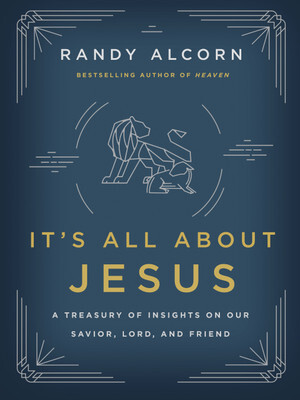 It's All About Jesus
It's All About Jesus
October 22, 2025
Delighting in God Isn’t Dependent on Favorable Circumstances

The prophet Habakkuk understood that there is a joy that transcends all circumstances. Here was a man in a society heavily dependent upon livestock producing, fruit trees bearing, and crops yielding, yet in the midst of his nation’s darkest hour, when they were threatened by the invading armies of Babylon, he cried out:
Though the fig tree should not blossom, nor fruit be on the vines, the produce of the olive fail and the fields yield no food, the flock be cut off from the fold and there be no herd in the stalls, yet I will rejoice [alaz] in the Lord; I will take joy in the God of my salvation. (Habakkuk 3:17-18)
I will rejoice because of the Lord; I will be happy because of the God who delivers me! (NET)
The ESV translation of gil, “take joy,” like the NET’s “I will be happy,” captures Habakkuk’s mindset in the midst of horrific obstacles. He was actively grasping happiness in the Lord—determined, by God’s grace and strength, not to allow his tragic circumstances to defeat him.
Sometimes we read Scripture about rejoicing or trusting and think, Easy to say, but you’re not facing what I am. But few people have faced conditions as dire as Habakkuk, with the impending destruction of his nation, family, friends, and entire way of life. His statement “I will be happy because of the God who delivers me” demonstrates that delighting in God isn’t dependent on favorable circumstances. This is one of the more dramatic proofs in Scripture that joy and happiness aren’t just passive reactions but involve determined choices.
Of course, we should never flippantly say, “Happiness is a choice.” It’s not always easy to choose what brings ultimate lasting happiness over what brings instant temporary happiness. However, it’s God who empowers us through His Spirit to believe in Him and obey Him. He calls upon us to genuinely cooperate with Him, which requires effort and discipline on our part, yet we do so by drawing on His strength and grace.
Happiness in God involves an act of will toward the God who’s there and who loves us, even in sickness, hunger, war, and prison cells. It’s built on His all-encompassing sovereignty, love, goodness, grace, gladness, and redemptive purposes in our lives. By choosing happiness in Christ, we’re gratefully receiving God’s grace and His own happiness.
Recommended Reading
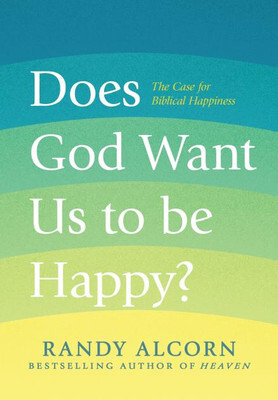 Does God Want Us to Be Happy?
Does God Want Us to Be Happy?  God's Promise of Happiness
God's Promise of Happiness  Happiness (softcover)
Happiness (softcover)
October 17, 2025
Prayer Is Vital in the Battle for Purity

Jesus taught His disciples to “always pray and not give up” (Luke 18:1).
We are often brought to our knees after losing a battle. But we need to fall to our knees before the battle begins.
Too often we declare a truce with sin. We tolerate unrighteousness and let it claim more territory in our lives and in our homes.
Jesus says, “Don’t give up! Pray for God’s help.” Some readers will be suspicious of this because they’ve heard “Just read the Bible and pray, and that will solve everything.” No, it won’t solve everything, but nothing will be solved without it. Jesus knew what He was talking about. So did James.
“Resist the devil, and he will flee from you” (James 4:7).
Would God tell you to abstain from impurity if that were impossible?
Many men have been defeated so long they think victory is impossible. They’ve given up. That guarantees they’ll go right on losing. But God calls us and empowers us to be overcomers (see Revelation 3:5)—those who experience victory over sin.
An overcoming friend told me, “People never change until it hurts them less to change than to stay the same.” Many Christian men—most of whom had to become desperate first—are in sexual-addiction recovery groups that have been great instruments of change in their lives. Tens of thousands of people are living proof that victory over sexual temptation is possible. And frankly, we need to hear their stories in our churches, to glorify God and bring this message of hope.
Likewise, many non-Christian men have achieved significant freedom through the secular program Sexaholics Anonymous, which uses the twelve steps of Alcoholics Anonymous. If men without Christ have made such radical changes (by affirming many biblical principles, certainly), how dare we imagine that the Spirit of God cannot do far more in believers He indwells and empowers?
If someone put a gun to your head and said he would pull the trigger if you looked at pornography, would you do it? No? Then you don’t have to. You just keep putting yourself and your eyes in the wrong place. This is where you must learn to correct your wrong thinking with God’s truth, saying no to your impulses and cultivating new ones.
You can turn it off, walk out, shut your eyes. You don’t have to click on that link. You don’t have to fondle that person or allow him or her to fondle you. There’s an alternative.
Draw upon your supernatural resources (see 2 Peter 1:3–4).
“For the grace of God that brings salvation... teaches us to say “No” to ungodliness and worldly passions, and to live self-controlled, upright and godly lives in this present age” (Titus 2:11–12).
This is all about the great themes of Scripture: redemption and grace. Our sexual struggles should remind us of our need for grace and empowerment—and make us long for our ultimate redemption (see Romans 7:7–25).
If a lifetime of purity seems inconceivable to you, commit yourself in twenty-four-hour increments. Do you want freedom from the actions and obsessions of lust? Get help. Be wise. Avoid temptation. Go to Christ. Experience His sufficiency. Draw on His power.
And when the first twenty-four hours are over, and you’ve tasted of the Lord and seen He is good (see Psalm 34:8), commit to the next twenty-four hours. Depend on Him one day at a time.
Never underestimate Christ. Sin is not more powerful than God. Don’t imagine there can’t be victory until we get to Heaven. God says otherwise. We’re not to wait for victory. We’re to live in it (see 1 John 5:4).
Recommended Reading
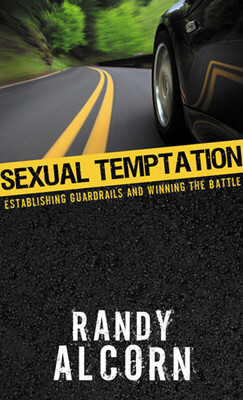 Sexual Temptation Booklet
Sexual Temptation Booklet 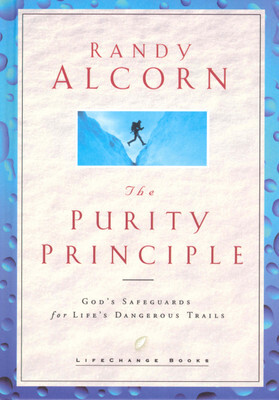 The Purity Principle
The Purity Principle
October 15, 2025
How Perspective Affects Our Happiness

Happiness researchers have found that circumstances can contribute about 10 percent to our happiness—a remarkably small percentage. Next comes our internal makeup, including genetic factors and temperament, which can account for 50 percent of our happiness level. The final 40 percent is entirely within our control: our choices, behaviors, and thoughts. Yes, we can control our thoughts. They’re not foreign invaders against which we have no defense. Those who believe they can’t help the way they think and feel are simply wrong.
Why are some people happier than those in far better circumstances? The answer is perspective.
Our perceptions—much more than our circumstances—are the building blocks with which we construct our lives. No matter what the circumstances and stress, our view of life determines our level of joy and contentment. Having a biblical perspective is seeing life as God sees it. It is the ability to get past the immediate circumstances to see God’s ultimate plan.
We’re commanded in Scripture, “Do not be conformed to this world, but be transformed by the renewal of your mind” (Romans 12:2). This change in thinking is our responsibility.
Our thought life is a choice. Martin Luther is credited with saying, “You can’t stop the birds from flying over your head, but you can keep them from making a nest in your hair.” What we choose to think about leads us either toward or away from Christ, and therefore toward or away from happiness in Christ.
None of the three sets of factors identified by happiness researchers takes into account the power of God’s Word and the transforming work of the Holy Spirit indwelling God’s children. God is sovereign over circumstances, genetics, background, and temperaments. So even the 60 percent of happiness factors we can’t change are used by God to accomplish His purpose. And the 40 percent under our control are subject to the Holy Spirit’s influence.
Sometimes small, easy choices bring happiness—flipping through a photo album, petting a dog or cat, reading an inspirational book, baking cookies, or playing a game with those you love. At other times, life involves such sadness and stress that we must go through multiple steps and the passing of time before joy can emerge.
David began a psalm with these words: “Be gracious to me, O Lord, for I am languishing; heal me, O Lord, for my bones are troubled. . . . I am weary with my moaning; every night I flood my bed with tears” (Psalm 6:2, 6). Near the end of the psalm, he says, “The Lord has heard the sound of my weeping. The Lord has heard my plea; the Lord accepts my prayer” (verses 8-9). This realization lays the groundwork for moving David toward the kind of powerful joy that is so evident in other psalms.
Recommended Reading
 Does God Want Us to Be Happy?
Does God Want Us to Be Happy?  God's Promise of Happiness
God's Promise of Happiness  Happiness (softcover)
Happiness (softcover)
October 13, 2025
Being with God Is the Heart and Soul of Heaven

The 1998 movie What Dreams May Come portrays Heaven as beautiful but lonely, because a man’s wife isn’t there. Remarkably, someone else is entirely absent from the movie’s depiction of Heaven: God.
That movie’s viewpoint mirrors numerous contemporary approaches to Heaven which either leave God out or put Him in a secondary role.
The Five People You Meet in Heaven, a best-selling novel by Mitch Albom, portrays a man who feels lonely and unimportant. He dies, goes to Heaven, and meets five people who tell him his life really mattered. He discovers forgiveness and acceptance, all without God and without Christ as the object of saving faith.
Five People portrays a Heaven that isn’t about God and our relationship with Him, but only about human beings and our relationships with each other. A Heaven where humanity is the cosmic center, and God plays a supporting role. The Bible knows nothing of this pseudo-Heaven.
Numerous people claim to have gone to Heaven and seen loved ones and also Jesus, yet almost never do they react as the “beloved disciple,” the apostle John, did: “When I saw him, I fell at his feet as though dead” (Revelation 1:17).
Surely no one who had actually been in Heaven would neglect to mention what Scripture shows is its main focus. If you had spent an evening dining with a king, you wouldn’t just talk about the place settings! When John was shown Heaven and wrote about it, he recorded the details—but first and foremost, from beginning to end, he kept talking about Jesus, the Lion and the Lamb, with infinite gravitas and beauty.
A Honeymoon without a Groom?
Jesus promised His disciples, “I will come back and take you to be with me that you also may be where I am” (John 14:3). For Christians, to die is to “be present with the Lord” (2 Corinthians 5:8, NKJV). The apostle Paul says, “I desire to depart and be with Christ, which is better by far” (Philippians 1:23). He could have said, “I desire to depart and be in Heaven,” but he didn’t—his mind was on being with Jesus.
Heaven without God would be like a honeymoon without a groom or a palace without a king. Teresa of Avila said, “Wherever God is, there is Heaven.” The corollary: Wherever God is not, there is Hell.
The presence of God is the essence of Heaven. John Milton put it, “Thy presence makes our Paradise, and where Thou art is Heaven.” Heaven will be a physical extension of God’s goodness.
Samuel Rutherford said, “O my Lord Jesus Christ, if I could be in heaven without thee, it would be a hell; and if I could be in hell, and have thee still, it would be a heaven to me, for thou art all the heaven I want.” To be with God—to know Him, to see Him—is the central, irreducible draw of Heaven.
Heaven’s Greatest Miracle
The best part of Heaven on the New Earth will be enjoying God’s presence. He’ll actually dwell among us (Revelation 21:3-4). Just as the Holy of Holies contained the dazzling presence of God in ancient Israel, so will the New Jerusalem contain His presence. The New Earth’s greatest miracle will be our continual, unimpeded access to the God of everlasting splendor and perpetual delight.
What is the essence of eternal life? “That they may know you, the only true God, and Jesus Christ, whom you have sent” (John 17:3). The best part of Heaven will be knowing and enjoying God.
Sam Storms writes, “We will constantly be more amazed with God, more in love with God, and thus ever more relishing his presence and our relationship with him. Our experience of God will never reach its consummation. …It will deepen and develop, intensify and amplify, unfold and increase, broaden and balloon.”
The Reservoir that Will Never Run Dry
Because He is beautiful beyond measure, if we knew nothing more than that Heaven was God’s dwelling place, it would be more than enough to make us long to be there.
Of course we will enjoy all the secondary gifts God gives us, but they will be derivative of God Himself, and our happiness in them will be happiness in Him. Jonathan Edwards said, “The redeemed will indeed enjoy other things…but that which they shall enjoy in the angels, or each other, or in anything else whatsoever, that will yield them delight and happiness, will be what will be seen of God in them.”
“They feast on the abundance of your house; you give them drink from your river of delights. For with you is the fountain of life” (Psalm 36:8-9). This passage portrays the joy that God’s creatures find in feasting on Heaven’s abundance, and drinking deeply of His delights. Notice that this river of delights flows from and is completely dependent on its source: God. He alone is the fountain of life, and without Him there could be neither life nor abundance and delights.
The Ultimate Wonder
We may imagine we want a thousand different things, but God is the one we really long for. “O God, you are my God, earnestly I seek you; my soul thirsts for you, my body longs for you, in a dry and weary land where there is no water” (Psalm 63:1). God’s presence brings satisfaction; His absence brings thirst and longing.
Our longing for Heaven is a longing for God—a longing that involves not only our inner beings, but also our bodies. Being with God is the heart and soul of Heaven. Every other heavenly pleasure will derive from and be secondary to His presence.
All our explorations and adventures and projects in the eternal Heaven—and I believe there will be many—will pale in comparison to the wonder of being with God and entering into His happiness. Yet everything else we do will help us to know and worship God better.
God’s greatest gift to us is now, and always will be, nothing less than Himself.
Recommended Reading
 50 Days of Heaven (Special Edition)
50 Days of Heaven (Special Edition)  Everything You Always Wanted to Know About Heaven
Everything You Always Wanted to Know About Heaven  Heaven
Heaven



